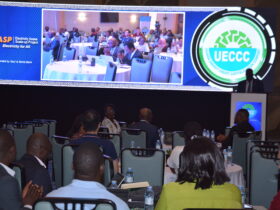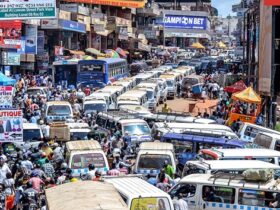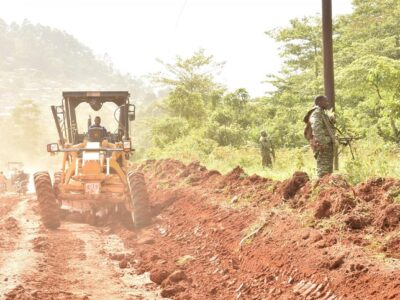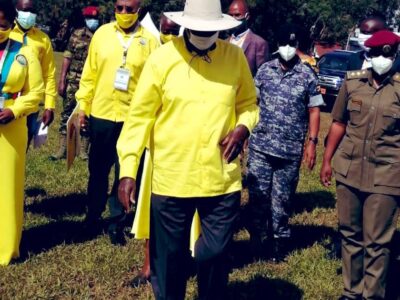By Dixon Ampumuza Kagurusi
In the last century, three influenza pandemics swept through the globe. In 1918, the first pandemic (sometimes referred to as the Spanish Flu) killed over 500,000 people. Pandemics in 1957 and 1968 killed millions across the world. Scientists believe that viruses from birds played a role in each of those outbreaks.
In 1918 and 1919, a virulent strain of influenza spread rapidly through East Africa, killing hundreds of thousands of people in only a few months. Nobody had a cure for this fatal pandemic disease, and medical authorities struggled to control it with little success until it finally ended.
Although this strain of influenza devastated populations in Uganda, a closer examination shows that the administration in the colonial Uganda adjacent British colonies responded to the disease quite differently. By contrast, the influenza epidemic received less attention and other diseases played a much larger role in shaping Uganda’s public health policies.
Uganda has however learned lessons from HIV and other epidemics like Ebola, which has tested Uganda’s public health and political systems several times over the years.
Today, we face threats from new strains of viruses. The latest being the COVID-19 pandemic. In Uganda, the first confirmed case was declared on March 21, by the Ministry of Health. The case was a 36-year-old Ugandan man who arrived from Dubai.
Just like other countries, Uganda is racing to slow down the spread of the virus by testing and treating cases. The COVID-19 team is also carrying out contact tracing and the government has limited travel by banning public and private transport means.
Irrespective of the negative effects of the COVID-19 pandemic, it should be noted that many opportunities are at the county’s disposal if well traced, recognized and taken advantage of.
COVID-19 has brought out the true spirit of solidarity among Ugandans. As a Ugandan, I have always admired Western countries over their sense of patriotism and wondered why we can’t emulate them.
The pandemic has shown that Ugandans too can stand united for a cause. Different ethnic and religious groups have joined hands to support the government and one another following the presidential call for a concerted effort towards fighting the war against the pandemic. Besides that, all political parties and interest groups have not politicized the fight as it used to be and have responded positively in support of the common cause. For instance, the political pressure group known as People Power contributed food relief to the national task force. Four-time presidential candidate Dr. Kizza Besigye has come up to give technical advice and others irrespective of their political disagreements with the NRM government have expressed solidarity.
The pandemic has revealed the strength of the public and civil service right from President Yoweri Museveni’s decisive leadership and guidance to the Ministry of Health officials, the civilian and UPDF medical teams at the frontline.
The Ugandan medical research teams and case management teams have really proved their capability to treat Ugandans and handle cases given their experience in handling pandemics like HIV/AIDs, Ebola, Marburg, nodding disease, Hepatitis B and others.
Through the Uganda Virus Research Institute, the Ugandan scientists are running tests to detect those who are positive and refer them for treatment. Besides, the security apparatus of the state has also proven to be an asset to the Uganda population in securing the borders and maintaining order during the lockdown
The levels of nationalism and patriotism among Ugandans at large has been strengthened despite being one of the most divergent and heterogeneous societies of the World. This can be justified by the levels of compliance among the population to the presidential directives and the Standard Operating Procedures (SOPs) from the Ministry of Health that is high. For instance, driving around Kampala, academic institutions closed, bars, lodges, worshipping Centres, sports and concerts stopped, traders locked their businesses, public and private means of transport stopped and many others as a way of complying with the presidential directives in a bid to fight against the spread of Covid-19.
Ugandans have revealed the love for their country through contributing to the National task force in terms of food and non-food items to support the vulnerable Ugandans to keep home and keep safe.
There is an opportunity for Uganda to increase its self-reliance levels in terms of industrial productivity. Given the fact that there is a reduced inflow of finished goods that mainly used to be imported from China, India and Europe. Ugandan manufacturing industries are likely to become more innovative to introduce import substitution products. Given the existence of a good political will to support these companies in form of industrial loans from the Uganda Development Bank (UDB), these companies will be in a position to begin producing whatever has been previously imported.
So far, this coming financial year, the government of Uganda has been promised funds to run its $500 million four- year plan of supporting industries in Uganda to enforce import substitution. In the efforts for import substitution, Nytil factory has embarked on mass production of face masks with a daily production capacity of 200,000 Masks per day. Many other factories that used to produce alcohol (spirits) are producing hand sanitizers and even exporting some to other countries. More so, Ugandan sugarcane farmers are to benefit from the high prices of Sugarcane.
The other opportunity is the improvement in the health sector performance given the prioritization in equipping the sector with facilities that can handle a mass spread of the COVID-19 as well as containing other diseases. The government has appropriated sh2.6 trillion to fully support the health sector from the grassroot level and activists have put the government on pressure to increase her allocations to the ministry of health.
Besides, trust in the domestic health system is being reassured for the fact that those who have been going abroad for treatment are being treated from Uganda and none of the ‘big men and women’ has died because of not having access to treatment from outside advanced countries. It should also be noted that given the lockdown and closure of international travels, government officials will be compelled to work hard for the improvement of the health system because in case they fall sick, they will have to be treated from within the country.
The levels of social and public health discipline have increased among the Ugandans and great behaviour change is expected from the population. It should be noted that Uganda’s population has been very reluctant in practising the basic hygienic norms of hand-washing with soap and water severally, have been reluctant on their physical contacts irrespective of the health threats of the many socially transmitted diseases such as Tuberculosis, Hepatitis B and other skin diseases but with the outbreak of COVID-19 and its social distancing requirements, there is already a positive transformation of the population.
The habit of wastage of food and other resources due to abundance has been checked by the situation of lockdown that many Ugandans have learnt how to prepare only what they are going to eat while saving the rest for the next day and future uncertainties.
The advancement in technology, innovation and ICT usage is also being seen among the Ugandans. Given the fact that physical movement and contact is limited or completely cut-off among many Ugandans, a lot of innovative technological ways of communicating, conducting business and doing work from remote areas such as home have been at the forefront.
Many delivery companies have innovated software that can help to keep themselves in contact with the sellers and the buyers, ICT supported meetings such as on video conferencing and Skype have been highly adopted, some academic institutions like ISBAT University, UCU and others are conducting online studies.
The rate of using cash transactions has reduced. Cash has been identified as a source of virus transfer, and now, many people are using online banking and mobile money transactions. All of these help in reducing the cost of the National economy in terms of money wasted in traffic, as well as minimizing virus spread through using online transfer, with unnecessary money movements.
Time is saved, service attendants minimized for cash transactions, and the chance for corruption is reduced with the elimination of manual deals.
We must continue to take the right path with good decision making as the recent government decisions to support two innovations from Makerere University that is Medical Tents and Ventilator manufacturing with 2billions UGX,
With such golden opportunities, if the government, citizens and other stakeholders seize them and take necessary actions, acquire the support required in terms of resources required, Uganda will be independent, and self-sufficient in these areas.
The Writer is a former aspirant for Kinkizi West Constituency.












